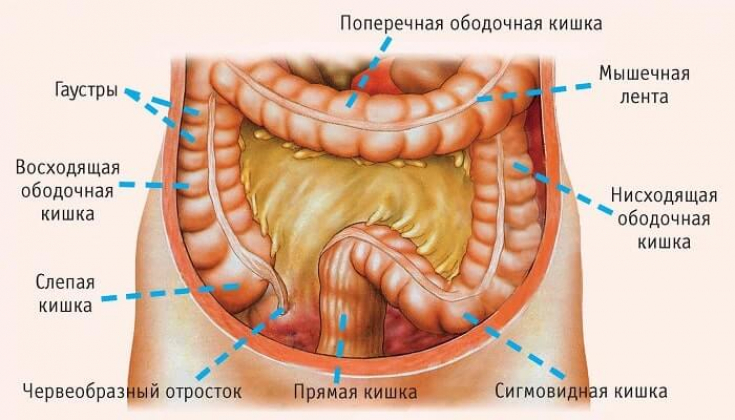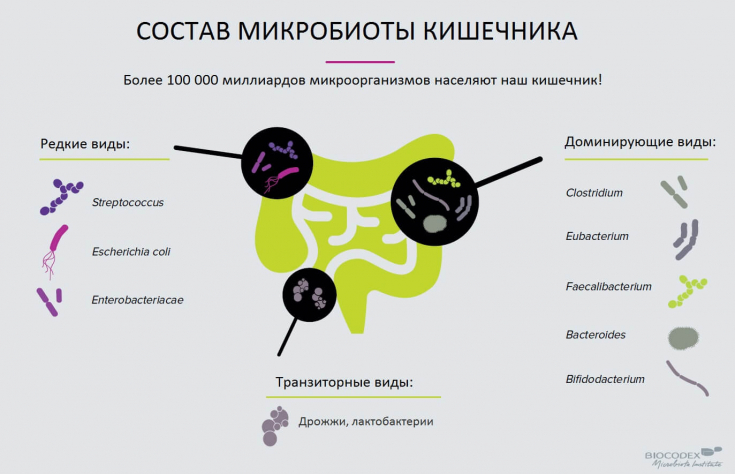When the first symptoms of ailments appear – headache, hypertension, nausea – we do not think about the cause of their appearance, but simply strive to stop the pain with medicines. Uncontrolled use of medicines, a person acquires new problems and diseases. There are many studies that have proven a direct link between gut health and chronic disease. 90% of all diseases occur against the background of a clogged intestinal tract. The influence of the intestines in human life cannot be overestimated. It affects the functioning of the immune system, nervous, endocrine. Nervous tension, stress – cause digestive problems.
estet-portal.com will tell about the value of a healthy intestine, how the microflora in it affects the functioning of the body. <
- Influence of the gut – top 5 systems under his leadership
- How gut function affects the brain
- Interesting facts about bowel function Influence of the gut – top 5 systems under his leadership
The mass of all microbes that live in the intestines – 3 kg. Normally, 95% of this amount is made up of beneficial anaerobes – bifido, lactobacilli, E. coli. A small amount also contains harmful microorganisms, the reproduction of which is inhibited by beneficial bacteria. When the balance of microflora is disturbed, dysbacteriosis occurs.
More useful information on our channel inTelegram! It is the qualitative composition of the flora that determines the influence of the intestines on the health of organs and body systems.

1. Skin condition.
Rash, peeling, dryness – response to bowel problems. The appearance of lesions on the skin is a response of the immune system to the contents of the intestinal tract. To eliminate unpleasant signs, it is enough to change the diet, adhering to the diet.
2. Immune system.
70% of the immune system is located in the gut. Every day, it receives thousands of pathogenic proteins and substances that threaten the onset of diseases. The purpose of the microflora – neutralization of alien organisms in a short time. When ingested in a poorly functioning gut, these bacteria lead to allergies, migraines and autoimmune diseases.
3. Kidney function.
The large intestine is responsible for the water-salt balance, therefore, if the mucosa is damaged – kidney function is disrupted. Poor functioning of the intestinal mucosa leads to the growth of pathogenic bacteria, enhancing the immune response. An inflammatory process occurs that affects the kidneys.
4. Liver health.
All harmful substances enter the intestines through the liver, from where, together with bile, they are easier to remove. Disturbances in the work of the intestinal tract affect the health of the liver, leading to chronic diseases and fibrosis. . Weight. To gain weight, you need a large amount of nutrients into which food is divided by the intestines.
How gut function affects the brain
Often, due to the number of nerve cells in the walls of the stomach and intestines, it is called the "second brain". The hormones endorphin and serotonin, which are responsible for well-being, joy and elation, are produced in greater quantities by intestinal nerve cells.
Doctors Recommend: Top 5 Foods That Extend Life
With normal
function of the gastrointestinal tract
, a person's mood rises, efficiency increases, this explains the desire to eat something tasty. But such food in our understanding does not always improve digestion. What is tasty for humans is harmful to microflora.
Cytokines
– proteins of the immune system produced by the intestinal microflora. They affect brain function. Substances that are a barrier between the brain and blood, to protect it from harmful substances, are produced by intestinal microbes.
Interesting facts about bowel function
Use this knowledge:
• exercise affects the balance of bacteria that prevent weight gain;
• fermented foods – natural probiotic to improve bowel and brain function, such as sauerkraut and cucumbers;• if the work of the intestines is disturbed, then you will feel an emotional imbalance, a decrease in brain functions;
• the human microbiome is formed in the first 3 years of life and remains so throughout life;
• emotions that occur in the brain are reflected in the alimentary tract,
The influence of the intestines
is reflected in all systems and organs. Important – keep it clean by eating more wholesome foods. Do not overeat, take breaks between meals for 3-4 hours, drink clean water. This way you will ensure the health of the whole organism. no
Watch us on YouTube:






Add a comment